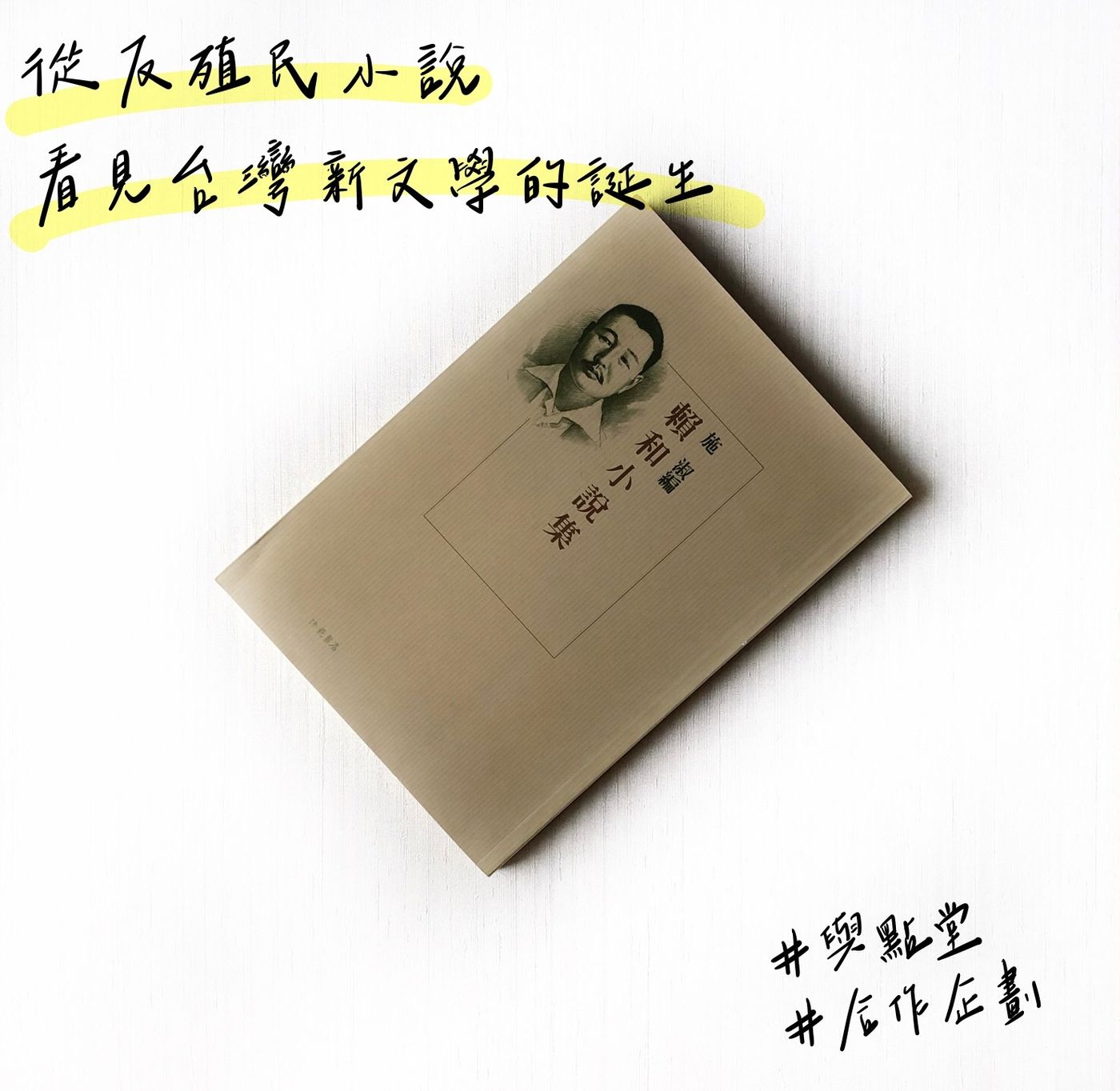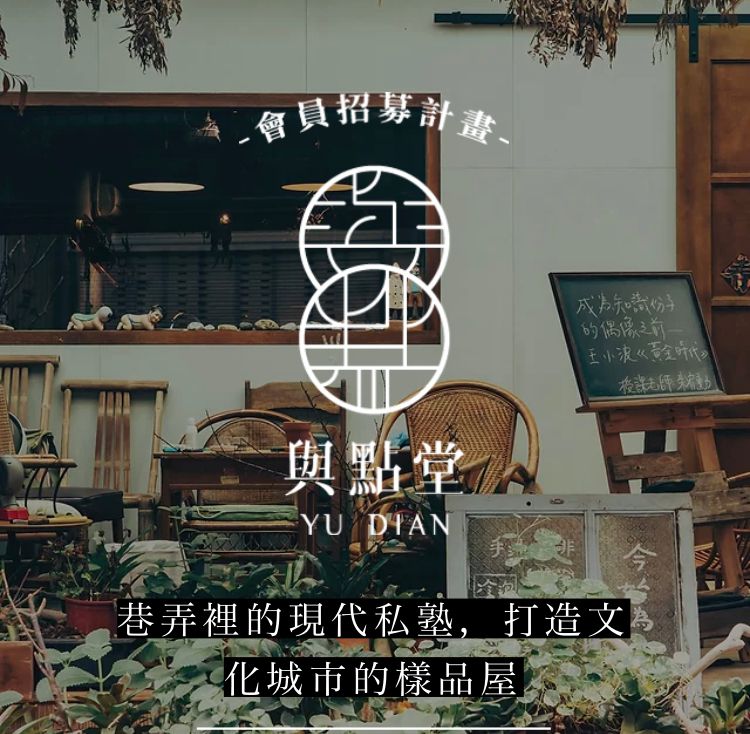
前國際新聞編譯,韓劇、書籍成癮人士。 每週分享讀書心得,偶爾介紹韓國文化。
[Reading Notes] Seeing the Birth of Taiwan's New Literature from Anti-colonial Novels - "The Collection of Lai He's Novels"
law! what! This is really a cherished word. I don't know when, who created it? It is a very intentional invention, so it still retains the privilege of monopoly. When the world finally has it, human beings will not dare to do anything wrong, the rich will be free from the danger of being stolen, and the poor will be able to endure starvation to death in peace. - "Mr. Snake" Lai He

"Vernacular" is now the most accustomed style of writing for modern readers, including word choice, logic, and structure, which have become the basic conditions for judging whether a book is "good-looking". However, the kind of "new literature" we are used to actually started less than a hundred years ago, with the hard work of a group of Taiwanese writers during the Japanese occupation period. Among them, Lai He, who is respected as the "father of Taiwan's new literature", has set a milestone. important writer. This time, I am honored to be invited by the fundraising platform "Sheikou Zoom" and the modern private school "Yodiantang" to join the class of writer Sheng Haowei to discuss Japanese-occupied Taiwanese writers. Next week will be Lai He's birthday commemoration. You can share Lai He's works and some knowledge gained in the classroom.
The representative of anti-colonialism, the father of Taiwan's new literature - Lai He
Born in 1894 and died in 1943, Lai He's life can be said to be closely linked to the period of Japanese occupation. His hometown is in Changhua and he belongs to the common people, which also allows him to be closer to the life of ordinary people, not only because of his doctor's career. Saving people is called "Changhua Mazu". While his articles resist colonization and criticize those in power, they can also see the social pattern of ordinary people's life at that time. This "Lai He Novel Collection" published by Hong Fan Bookstore includes 21 short stories written by Lai He. With his words, it also presents the first generation of Japanese-occupied Taiwanese writers, transformed from the classical Chinese system. change to the vernacular.
Because the patrolmen are specializing in searching for the details of the common people, to make their achievements, the more criminal incidents are found, the faster their promotion will be. Therefore, there are always too many accidents that arise out of nothing, and people who do not sue for grievances. All traffic bans, road rules, food and drink regulations, travel regulations, weights and measures regulations, and every move in daily life are all within the scope of the law's interference and ban. ──Her wife borrowed the new weigher just in case.
"One Pole Weighing Boy", which appeared in the Chinese course, may be Lai He's well-known work. Among them, the humiliation of the protagonist Qin Deshen, the arrogance of the Japanese police, and the ending of the tragedy are all impressive; and the quick dialogue between Qin and the judge after the arrest can even feel the author's indignant state of mind. He used Beijing vernacular for general descriptions and Taiwanese grammar for dialogues. It can also be felt that he was able to create in vernacular language fluently, and he saw that Taiwanese writers at that time tried to record Taiwanese in Chinese without standardization. effort.
Language Experiments Mixing Chinese, Japanese and Taiwanese at the Boundary of Old and New Literature
For modern readers, reading Lai He's works may not be called "good-looking", but it is interesting to see many clues in the society and intellectual circles at that time. For example, the use of "moon" means that it already has the concept of a planet; the use of "fast, fast, fast" to symbolize the sound of gongs and drums, showing that there was no standardized use of words at that time, and the annoying but often appearing "〇〇〇" is more representative The fact that the Taiwan media at that time was suppressed and censored by the colonial regime.
Mixed with Beijing vernacular, unstandardized Taiwanese vernacular, and even some Japanese literal translations, the works of this important writer of Taiwan's new literature are not so easy to read, but at the same time they also allow people to reflect on what we take for granted today. The basic threshold of literature is actually the result of the construction of the predecessors word by word.
Finally, for readers who like various literary works, especially those from non-related departments, it is also recommended to participate in Yodiando's "2022 Membership Recruitment Program". Under the leadership of many professional writers and scholars, including Sheng Haowei, Zhu Jiaan, Zhu Youxun, and Li Pingyao, I learned about the background and culture of the times that are not described in the works, and then learned more about the meaning beyond words.

【Yodiantang | 2022 Membership Recruitment Plan】
Talk about knowledge outside the system, and teach classes that others dare not teach. Celebrating the first anniversary with Diantang, we hope to invite more people to join us and share our thoughts and life; we will build a sample house of a cultural city with us, and use the most ideal classroom to bet on the future of a culture.
Course information https://bit.ly/3weqCCy
Eslite Online: https://eslite.me/473r6j
Jinshitang Online Bookstore: https://pse.is/46r7ld
Blog to: https://pse.is/456wrq
Reading Life: https://pse.is/45b226
Read Books Used Books: https://pse.is/474fyh
Like my work?
Don't forget to support or like, so I know you are with me..
Comment…